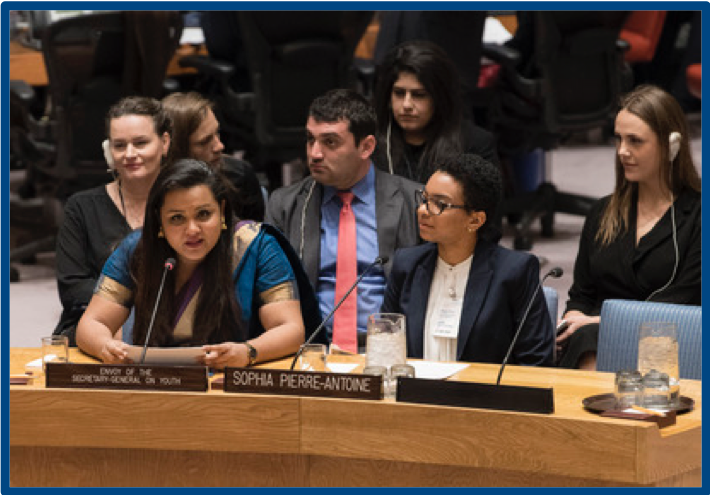Opportunities and Pitfalls in Practical Translation of Youth Inclusivity for Sustainable Peacebuilding in Africa
2018 has been a landmark year for youth and a time full of milestones on the UN’s Youth, Peace and Security agenda. By passing resolution 2250 in 2015 the Security Council acknowledged for the first time that young people drive change but that they are not in the driving seat. This resolution has inspired confidence in youth across the globe who are working persistently towards addressing conflict as well as violent extremism and are demanding peace. Young peacebuilders have been using this resolution to engage their national governments and support the important work they are already championing on the ground. On June 6, 2018, the United Nations Security Council unanimously adopted Resolution 2419 on increasing the role of youth in negotiating and implementing peace agreements, stressing the importance of including the views of youth in discussions relating to peace and security and calling for the full and equal participation of youth at decision-making levels. Although ample positive work has been realized on the basis of resolution 2250 and 2419, much remains to be done in fully translating their provisions into practice. The recently 2018 progress study on the youth’s positive contributions to peace processes and conflict resolution mandated by resolution 2250 offers important recommendations and tangible responses at local, national, regional and international levels that can feed future policy-making of UN member states.
Themen
Bereitgestellt von
Auslandsbüro New York
Über diese Reihe
Die Konrad-Adenauer-Stiftung ist in rund 110 Ländern auf fünf Kontinenten mit einem eigenen Büro vertreten. Die Auslandsmitarbeiter vor Ort können aus erster Hand über aktuelle Ereignisse und langfristige Entwicklungen in ihrem Einsatzland berichten. In den "Länderberichten" bieten sie den Nutzern der Webseite der Konrad-Adenauer-Stiftung exklusiv Analysen, Hintergrundinformationen und Einschätzungen.



